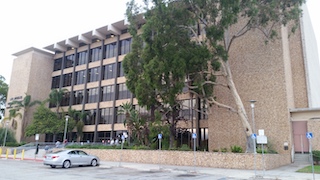Our client had purchased a car over 30 years ago from a Torrance auto dealership that had since then gone out of business.
When he purchased the car, he filled out an application and listed his employer as someone who was not his employer. The auto dealership did not know this and sold him the car. Our client made a down payment and drove the car off the lot.
In 50 Words or Less, What Happened: Our client had a bench warrant from Torrance Superior Court for 30 years for charges of grand theft auto and criminal fraud, both filed as felonies. Bail was $10,000 thirty years earlier, but $100,000 when our client showed up to have the bench warrant set aside. Greg made motion to reduce bail back to $10,000, which judge granted.
He went home and packed up his personal belongings, moved out without telling the landlord and drove to Mexico City from Torrance. Once in Mexico City, he found a secure garage, parked the car, removed his personal items and wrote a letter to the Torrance auto dealership, advising them he no longer wanted the car, telling them it was safe in a garage in Mexico City, giving them the address, and mailing back the keys. Our client then bought a one-way ticket to London and flew to London.
The auto dealership received the keys and did fetch the car, bringing it back to Torrance. They then sold it again.
Thirty years later, our client was advised by his employer that there was a felony bench warrant for him out of Torrance. Our client, still in London, contacted Greg Hill & Associates and spoke with Greg Hill.
Greg listened to the client explain the facts of the case and how he wanted to pay the dealership any money that he owed them. He also wanted to have the bench warrant removed so he could travel to the United States, as he had a son at a college in South Carolina.
Greg immediately pulled the court file and contacted the District Attorney about paying restitution to the victim and then having the bench warrant recalled if the prosecutor would allow our client to appear through counsel under Penal Code § 977(b), which the judge would still need to approve. The District Attorney at first did not respond for a month, so Greg made repeated attempts for an agreement by his client to pay the amount owed, but the prosecutor did not respond.
Greg then had the client sign a Penal Code § 977(b) waiver of his personal appearance and consent to have Greg appear on the bench warrant. Greg then appeared in the Torrance court, but the judge refused to accept the 977(b) waiver and permit Greg to appear on the client’s behalf.
The only alternative was to have the client fly in from England, be taken into custody at customs due to the bench warrant and then, appear in court with Greg. The client then arranged this and did get taken into custody at customs. He then posted the full amount of the bail, $2,500.

The client then appeared in the Torrance Courthouse and the bench warrant was recalled. Greg immediately set a preliminary hearing, but the soonest the court could schedule it was in twelve days (the People would not waive time for an earlier preliminary hearing).
The client then returned to London, as he could not work remotely from the United States and it was more expensive to stay in the United States than fly back to England, work for a few days and then return in twelve days.
However, when the client applied for permission to come back to the United States, his request was denied.
In the meantime, the prosecutor e-mailed Greg and notified him that the prosecution would be unable to proceed. They could not find the witnesses or the police officers. This meant that if the client appeared, the judge would dismiss the case.
Greg thus appeared at the preliminary hearing without the client. He sheepishly explained to the prosecutor that his client was stuck in London, showing her the letter from the U.S. Embassy denying his request to enter the United States. He also, as a professional courtesy, advised her that he would ask the judge to permit his appearance under Penal Code § 977(b) since the client had signed the waiver.
The judge took the bench and called the matter. Greg and the prosecutor approached the bench and explained to the judge the situation.
The judge then asked about the facts of the case and the prosecutor explained them to the judge. The prosecutor explained how Greg had “jammed” the prosecution by demanding a preliminary hearing as soon as possible, depriving the prosecution of adequate time to research restitution and find the necessary witnesses for the preliminary hearing.
Greg then asked the judge for permission to appear under Penal Code § 977(b). The judge denied this and, honoring the prosecutor’s request, set bail at $100,000.
Greg then asked to be heard on the issue of bail and explained the client’s good faith attempt to come here, but how it was denied. He then explained how restitution was the big issue and that he had been trying to find out the restitution owed for over eight months, so it was not accurate for the prosecutor to say her office had insufficient time to research restitution. He also explained how his client had done the responsible thing by hiring a local attorney, flying to the United States and had only returned to London to get in a few days of work.
 Torrance Courthouse
Torrance Courthouse

 Torrance Courthouse
Torrance Courthouse